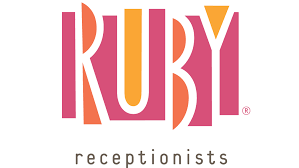In July 2021, a Federal Court in Portland Oregon approved a class action settlement in a case against Ruby Receptionists (a large telephone answering service provider). The suit alleged that Ruby did not properly disclose how it would bill clients for time its virtual receptionists spent on the phone while performing answering services.
The case shows the difficulty of how to clearly inform clients of answering services about how they will be billed. Telephone answering services charge clients in different ways, but one of the most common was is to bill by the minute (or fraction thereof). In the Ruby Receptionist lawsuit, the plaintiffs claimed that Ruby Receptionist was misleading in describing their per minute fee structure which generally stated that they charged per “Receptionist Minute” which was described as:
We only charge for the time that the receptionist is involved in the call; there are no charges per transfer, per message, or for the time that you talk to your caller.
The plaintiffs argued that Ruby Receptionists went too far in how they counted “Receptionist Minutes”. In particular, the plaintiffs argued that Ruby:
calculated “receptionist minutes” in a very different manner than it has represented or which the parties agreed upon, including time periods well beyond “the time that the receptionist is involved in the call,” and systematically overcharges its clients for its services by 1) rounding up receptionist time beyond that actually spent involved handling a call; and 2) by charging for receptionist time while a caller is in a hold queue waiting for the call to be received when no receptionist is involved with the call.
McKENZIE LAW FIRM, P.A., et al v. Ruby Receptionists, Inc., Case No. 3:18-cv-1921-SI (D. Or.)
In the case that started the class action, a law firm client of Ruby Receptionists agreed to pay Ruby $2.54 per minute to handle its calls. As discuss in the Cost of TAS services, this rate may be a good rate as the law firm's calls are likely very valuable and need to be handled properly. The law firm, however, was not happy that Ruby charged for time other than actual talk time. For example, the firm was billed for time calls were in queue, after work time, and other times the Ruby virtual receptionist was involved with the handling the call.
At Call Center Advisor, we know that it is common (and actually should be expected) for a virtual receptionist service to bill for those types of times. However, in Ruby's case, the company could have done a better job in explaining the fee structure to its clients.
The unfortunate result in the poor disclosure was a class action judgement of almost $12 million. You can read more about the settlement here.
Since that settlement, many of the more sophisticated telephone answering service providers have updated their terms and conditions as well as their websites to more clearly explain how clients are charged.

